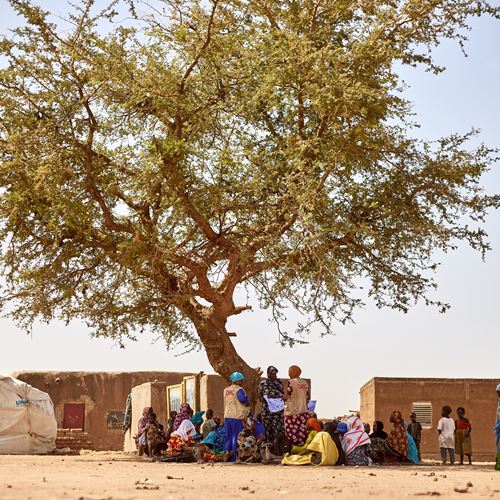Romain
Sztark
Head of Multi Country Grants Operations
This project aims at developing a better understanding of the impacts of climate change in displacement affected people in Burkina Faso, Mali and Niger in order to develop new partnerships and new methods to prevent and mitigate consequences. It will help DRC explore and asses what role humanitarian actors can play in the equation to tackle the growing climate challenge in hard-to-reach areas.

DRC country operations in Burkina Faso, Niger and Mali have reflected DRC’s organizational commitment to address the impacts of climate change on conflict and displacement-affected populations, with all three Country offices having included climate resilience as a priority in their strategic plans. This interest follow a realization that humanitarian country operations struggle to translate strategic vision into impactful on-the-ground programming. As humanitarians we need a better contextualized understanding of climate risks and their impacts on PoC in DRC’s operational contexts, as well as understand the capacity need for project designs to enable climate adaption. Furthermore, and motivated by the lacking understanding, humanitarian actors need to understand how to credibly access also the funding types needed to respond to complex needs.
This project will fill both knowledge and capacity gaps by setting the foundation that will inform project design and identify potential partners with relevant and complementary capacities. The project places a particular emphasis on National Adaptation Plans (NAPs) as central framework to explore and work with inclusion of communities affected by displacement into climate adaptation efforts, recognizing that NAPs are the product of a country-driven, participatory process to identify long-term climate adaptation needs across sectors, at all levels that is informed by climate science.
This project aims at laying the groundwork that will allow DRC to contribute to wider climate adaptation efforts in the Sahel region
Based on National Adaptation Plans, the project will in each country context help DRC to produce local climate risk profiles, scope potential partners with demonstrated experience in environmental issues and participatory method and identify relevant adaptation activities to enhance resilience and support inclusion of displacement affected people. Potential partners will include actors with demonstrated experience in environmental issues and actors that employ participatory methodologies and can include local government entities, technical service actors, civil society organisations and development actors.
The project will explore the local ecosystems around climate adaptation, identifying how humanitarian actors can better contribute to the implementation of local adaptation efforts, prioritizing actions that align with NAPs and to the needs of DRC populations of concern.
Romain
Sztark
Head of Multi Country Grants Operations
Programme innovation and climate action work in DRC accelerate new ways of working, better impact and more sustainable paths for the people we work for, and aim to make a strategic contribution to the humanitarian eco-system that DRC is part of. Working with wicked problems, new trends, new approaches and partners - DRC programme innovation and business engagement unit support field-led explorations for new areas of work, piloting, transition and scale of new solutions using technological advances, new insights and new partnerships.